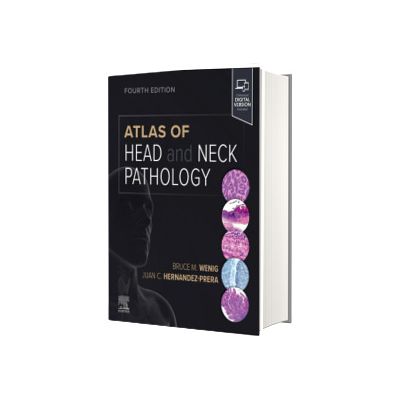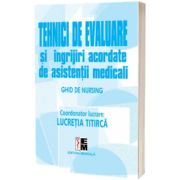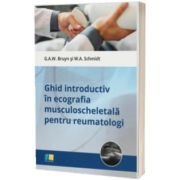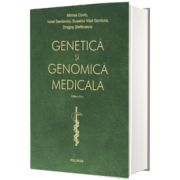Atlas of Head and Neck Pathology

DESCRIERE
With its consistent, practical organization and succinct bulleted format, Atlas of Head and Neck Pathology, 4th Edition, is an ideal resource for pathologists in training and in practice. High-quality illustrations with extensive figure legends depict the histological, immunohistochemical, cytologic and diagnostic imaging appearances of every type of head and neck pathology, while the user-friendly format allows for quick access to information. From cover to cover, this comprehensive reference is designed to help you effectively and accurately diagnose a wide range of head and neck disorders, improve your turnaround time when diagnosing a specimen, and facilitate clear reports on prognosis and therapeutic management options to surgical and medical colleagues.
Instructions for online access
Cover image
Title page
Table of Contents
Dedication
Copyright
In Memoriam
Preface
Section 1. Nasal Cavity and Paranasal Sinuses
Section 1. Nasal Cavity and Paranasal Sinuses
Chapter 1. Embryology, Anatomy, and Histology of the Sinonasal Tract
Nasal Cavity
Paranasal Sinuses
Chapter 2. Nonneoplastic Lesions of the Sinonasal Tract
Classification of Nonneoplastic Lesions of the Sinonasal Tract (Box 2. 1)
Infectious-Related Diseases of the Sinonasal Tract
Noninvasive FRS
Invasive Fungal Sinusitis (Figs. 2. 40 and 2. 41)
Other Fungi (Fig. 2. 48)
Bacterial Infections
Miscellaneous Sinonasal Bacterial Infections
Protozoal Nasal Infections
Viral Infection
Sarcoidosis
Myospherulosis (Fig. 2. 53)
Extranodal Rosai-Dorfman Disease (ERDD) (Fig. 2. 54)
Granulomatosis With Polyangiitis (GPA) (Figs. 2. 55–2. 58)
Eosinophilic Angiocentric Fibrosis (EAF) (Fig. 2. 60)
IgG4-Related Diseases
Necrotizing Sialometaplasia (NS)
Chapter 3. Neoplasms of the Sinonasal Tract
Classification of Neoplasms of the Sinonasal Tract (Box 3. 1)
Benign Neoplasms
Fibromatosis/Extraabdominal Fibromatoses
Malignant Neoplasms of the Nasal Cavity and Paranasal Sinuses
Rhabdomyosarcoma (RMS)
Section 2. Oral Cavity
Section 2. Oral Cavity
Chapter 4. Embryology, Anatomy, and Histology of the Oral Cavity
Embryology
Contents (Fig. 4. 1)
Anatomic Borders
Innervation
Vascular Supply and Lymphatic Drainage
Chapter 5. Nonneoplastic Lesions of the Oral Cavity
Classification of Nonneoplastic Lesions of the Oral Cavity (Box 5. 1)
Cystic (Nonneoplastic) Lesions
Infectious Diseases
Reactive, Inflammatory, and Tumor-Like Lesions of the Oral Cavity
Nonneoplastic Osseous-Related Lesions of the Head and Neck
Selective Autoimmune, Allergic, Systemic, Cutaneous-Type, and Miscellaneous Diseases Affecting the Oral Cavity
Chapter 6. Neoplasms of the Oral Cavity
Benign Neoplasms
Premalignant Oral Diseases/Lesions
Chapter 7. Intraoperative Consultation in Oral Cavity Mucosal Lesions
Indications
Surgeon’s Expectations
Specimen Handling and Orientation (Figs. 7. 1 and 7. 2)
Right-Angle (Perpendicular) Versus Parallel (En Face) Sections
Surgical Resection Margins
Differential Diagnosis or Pitfalls in the Intraoperative Assessment of Squamous Cell Carcinoma, Including Intraepithelial Dysplasia and Invasive Carcinoma
Contraindications (Fig. 7. 11)
Intraoperative “Rapid” Immunohistochemical Assessment
Molecular Biology in the Assessment of Surgical Margins (Molecular Margins of Resection)
Accuracy
Lymph Nodes
Section 3. Pharynx, Including Nasopharynx, Oropharynx, and Hypopharynx
Section 3. Pharynx, Including Nasopharynx, Oropharynx, and Hypopharynx
Chapter 8. Embryology, Anatomy, and Histology of the Pharynx
Pharynx
Histology
Chapter 9. Nonneoplastic Lesions of the Pharynx
Classification of Nonneoplastic Lesions of the Pharynx (Box 9. 1)
Nasopharyngeal Cysts
Pharyngeal Hamartomas, Choristomas, and Teratomatous Lesions
Infectious Diseases
Viral Diseases
Fungi
Bacteria and Spirochetes
Protozoa (Fig. 9. 21)
Tangier Disease (Fig. 9. 22)
Chapter 10. Neoplasms of the Pharynx
Neoplasms of the Pharynx (Box 10. 1)
Malignant Tumors
Section 4. The Neck
Section 4. The Neck
Chapter 11. Anatomy of the Neck
Anatomy (Fig. 11. 1)
Chapter 12. Nonneoplastic Lesions of the Neck
Classification of Nonneoplastic Lesions of the Neck (Box 12. 1)
Benign Cystic Lesions of the Cervical Neck
Mycobacterial and Other Granulomatous Diseases
Bacterial Diseases
Chapter 13. Neoplasms of the Neck
Classification of Neoplasms of the Neck (Box 13. 1)
Surgical Specimens
Borderline or Intermediate Fibroblastic/Myofibroblastic Tumors
Malignant Tumors
Evaluation of Posttreated Neck for Metastatic Carcinoma (Fig. 13. 60)
Secondary Tumors to the Neck (Other Than Carcinoma From Head and Neck Sites)
Section 5. Larynx and Trachea
Section 5. Larynx and Trachea
Chapter 14. Embryology, Anatomy, and Histology of the Larynx and Trachea
Larynx
Hypopharynx
Trachea
Chapter 15. Nonneoplastic Lesions of the Larynx and Trachea
Classification of Nonneoplastic Lesions of the Larynx and Trachea (Box 15. 1)
Acquired and Congenital Lesions
Laryngocele and Laryngeal Cysts
Chapter 16. Neoplasms of the Larynx and Trachea
Classification of NEOPLASMS of the Larynx and Trachea (Box 16. 1)
Benign Neoplasms of the Larynx
Benign Salivary Gland Tumors
Benign Nonepithelial Tumors
Malignant Neoplasms
Laryngeal Intraepithelial Dysplasia
Laryngeal Carcinoma In Situ (CIS) (Fig. 16. 22)
Microinvasive Carcinoma (Figs. 16. 23–16. 26)
Laryngeal Invasive Squamous Cell Carcinoma (Figs. 16. 27–16. 31)
Variants of Squamous Cell Carcinoma (Box 16. 4)
Other Uncommon Carcinoma Variants
Laryngeal Salivary Gland Malignant Neoplasms
Laryngeal Neuroendocrine Neoplasms
Laryngeal Neuroendocrine Neoplasms (See Box 16. 5)
Laryngeal Neuroendocrine Carcinomas
Nonepithelial Malignant Neoplasms of the Larynx
Chapter 17. Intraoperative Consultation of Laryngeal and Tracheal Lesions
Indications
Surgeon Expectations
Specimen Handling and Orientation
Definition of a “Positive” Margin
Adequacy of Resection Margins
Section 6. Major and Minor Salivary Glands
Section 6. Major and Minor Salivary Glands
Chapter 18. Embryology, Anatomy, and Histology of the Salivary Glands
Embryology
Anatomic Borders (Fig. 18. 1)
Innervation
Histology (Figs. 18. 2–18. 5; Tables 18. 1 and 18. 2)
Chapter 19. Nonneoplastic Diseases of Salivary Glands
Classification of Nonneoplastic Salivary Gland Lesions (Box 19. 1)
Developmental Lesions
Hyperplasia and Metaplasia
True Nonneoplastic Cysts of Major Salivary Glands (Sialocysts)
Nondevelopmental Cysts
Infectious, Inflammatory, Autoimmune Lesions of Salivary Glands
Chapter 20. Neoplasms of the Salivary Glands
Classification of Neoplasms of Salivary Glands (Box 20. 1)
Benign Neoplasms
Basal Cell Adenoma (BCA)(Figs. 20. 19–20. 25)
Warthin Tumor (WT) (Figs. 20. 26–20. 32)
Canalicular Adenoma (CA)(Figs. 20. 33–20. 35)
Oncocytoma (Fig. 20. 36)
Myoepithelioma (Figs. 20. 37–20. 41)
Cystadenoma (Fig. 20. 42)
Ductal Papillomas
Other Uncommon Benign Epithelial Neoplasms
Tumors With Sebaceous Differentiation
Benign Soft Tissue Tumors
Malignant Neoplasms
Polymorphous Adenocarcinoma Classification—Genotypic-Phenotypic Correlation
Malignant Mixed Tumors of Salivary Glands
Cystadenocarcinoma (Figs. 20. 145–20. 148)
Microsecretory Adenocarcinoma (Figs. 20. 149 and 20. 150)
Sclerosing Microcystic Adenocarcinoma (Fig. 20. 151)
Mucinous Adenocarcinoma (Fig. 20. 152)
Adenocarcinoma, Not Otherwise Specified (Figs. 20. 153–20. 157)
Primary Squamous Cell Carcinoma (SCC) (Figs. 20. 158 and 20. 159)
Lymphoepithelial Carcinoma (LEC) (Figs. 20. 160 and 20. 161)
Neuroendocrine Neoplasms
Malignant Sebaceous Tumors
Nonepithelial Malignant Salivary Gland Tumors
Sarcomas of Salivary Glands
Secondary Tumors
Chapter 21. Intraoperative Consultation in Salivary Glands and Biopsy Diagnosis of Salivary Gland Neoplasms
Intraoperative Consultation in Salivary Glands (Figs. 21. 1–21. 13)
Indications for Intraoperative Consultation in Salivary Gland Neoplasms
Surgeon’s Expectations of the Intraoperative Assessment of Salivary Gland Neoplasms
Approach to Handling of Resected Tissue
Diagnostic Considerations
Accuracy of Intraoperative Diagnosis
Biopsy Diagnosis of Salivary Gland Neoplasms (Figs. 21. 14 to 21. 19)
CONCLUSIONS
Section 7. External, Middle, and Internal Ear
Section 7. External, Middle, and Internal Ear
Chapter 22. Embryology, Anatomy, and Histology of the Ear
Embryology
Anatomy (Figs. 22. 1 to 22. 3)
Eustachian (Auditory) Tube
Innervation
Blood Supply and Lymphatic Drainage
Histology (Fig. 22. 4)
Auditory Epithelial Migration
Middle Ear (Figs. 22. 5 and 22. 6)
Chapter 23. Nonneoplastic Lesions of the Ear and Temporal Bone
Classification of Nonneoplastic Lesions of the Ear (Box 23. 1)
Congenital and Developmental Abnormalities of the Ear
External Ear
Middle and Inner Ear
Heterotopias (Choristomas) of the Middle Ear and Mastoid
Acquired Lesions of the Ear
Middle Ear and Temporal Bone
Infectious and Inflammatory Lesions
Otitis Media (Figs. 23. 24 to 23. 27)
Autoimmune, Systemic, and Degenerative Diseases of the Ear
Tophaceous Gout (Figs. 23. 34 and 23. 35)
Granulomatosis With Polyangiitis (GPA) (See Chapter 2)
Otosclerosis (Fig. 23. 38)
Paget Disease of Bone (Figs. 23. 39 and 23. 40)
Ménière Disease
Chapter 24. Neoplasms of the Ear and Temporal Bone
Classification of Neoplasms of the Ear (Box 24. 1)
Benign Neoplasms of the Middle Ear and Temporal Bone
Malignant Neoplasms of the External Ear
Malignant Neoplasms of the Middle Ear
Other Malignant Tumors of the Middle Ear and Temporal Bone
Chapter 25. Immunohistochemistry of Middle Ear Neoplasms
Section 8. Thyroid Gland
Section 8. Thyroid Gland
Chapter 26. Embryology, Anatomy, Histology, and Physiology of the Thyroid Gland
Embryology (Fig. 26. 1)
Anatomy (Fig. 26. 2)
Vascular Supply and Lymphatics
Histology
Thyroid C Cells (Fig. 26. 6)
Chapter 27. Nonneoplastic Lesions of the Thyroid Gland
Classification of Nonneoplastic Lesions of the Thyroid Gland ( Box 27. 1)
Ovarian Thyroid Tissue (Figs. 27. 16–27. 18)
Metaplasia of Thyroid Follicular Epithelium
Mesenchymal-Derived “Inclusions” in the Thyroid Gland
Hypothyroidism and Hyperthyroidism
Nonautoimmune Thyroiditis
Chapter 28. Neoplasms of the Thyroid Gland
CLASSIFICATION OF NEOPLASMS OF THE THYROID GLAND (BOX 28. 1)
MOLECULAR GENETICS OF FOLLICULAR CELL–DERIVED THYROID TUMORS (TABLE 28. 7)
MOLECULAR DICHOTOMY
CLINICAL STAGING OF THYROID CARCINOMA
Benign Follicular Epithelial Neoplasms
HISTOLOGIC TYPES OF FOLLICULAR THYROID ADENOMA CLASSIFIED BY CELL TYPE OR GROWTH PATTERN (BOX 28. 3)
LOW-RISK FOLLICULAR CELL–DERIVED NEOPLASMS
NONINVASIVE FOLLICULAR THYROID NEOPLASM WITH PAPILLARY-LIKE NUCLEAR FEATURES (NIFTP) (FIGS. 28. 24–28. 28)
MALIGNANT FOLLICULAR EPITHELIAL AND C CELL–DERIVED NEOPLASMS
PAPILLARY THYROID CARCINOMA (PTC)
HISTOLOGIC TYPES OF PTC (BOX 28. 6)
FOLLICULAR VARIANT OF PAPILLARY THYROID CARCINOMA (FVPTC)
HIGH-GRADE FOLLICULAR CELL–DERIVED NONANAPLASTIC THYROID CARCINOMAS
UNUSUAL EPITHELIAL TUMORS OF THE THYROID GLAND
Neuroendocrine Neoplasms
C CELL–RELATED LESIONS (C CELL HYPERPLASIA AND MEDULLARY THYROID CARCINOMA)
Lymphoproliferative Diseases of the Thyroid Gland
MALIGNANT LYMPHOPROLIFERATIVE NEOPLASMS
Nonepithelial Neoplasms of the Thyroid, Excluding Lymphoproliferative Diseases
THYROID LESIONS WITH THYMIC DIFFERENTIATION
INTRATHYROID THYMIC CARCINOMA OR CARCINOMA SHOWING THYMUS-LIKE DIFFERENTIATION (CASTLE) (FIG. 28. 130)
SECONDARY OR METASTATIC TUMORS TO THE THYROID GLAND (FIGS. 28. 132–28. 134)
Chapter 29. Thyroid Gland Post–Fine Needle Aspiration Biopsy–Related Histologic Changes and Intraoperative Consultation
Post–Fine Needle Aspiration Biopsy (FNAB)–Related Morphologic Changes (Figs. 29. 1–29. 12)
Surgeon’s Expectations
Intraoperative Cytology
Summary
Section 9. Parathyroid Glands
Section 9. Parathyroid Glands
Chapter 30. Embryology, Anatomy, and Histology of the Parathyroid Glands
Embryology
Anatomic Considerations (Fig. 30. 1)
Histology (Figs. 30. 2–30. 4; Table 30. 1)
Chapter 31. General Considerations
Hyperparathyroidism
Hypoparathyroidism
Chapter 32. Nonneoplastic Lesions of the Parathyroid Glands
Classification of Nonneoplastic Lesions of the Parathyroid Glands (Box 32. 1)
Primary Chief Cell Hyperplasia (Figs. 32. 1–32. 5; Table 32. 1)
Water–Clear-Cell Hyperplasia (Fig. 32. 6)
Secondary Hyperparathyroidism
Tertiary Hyperparathyroidism
Parathyromatosis (Fig. 32. 8)
Parathyroid Cyst (Figs. 32. 9–32. 11)
Chronic Parathyroiditis (Fig. 32. 12)
Chapter 33. Neoplasms of the Parathyroid Glands
Classification of Neoplasms of the Parathyroid Glands (Box 33. 1)
Chapter 34. Intraoperative Consultation (Frozen Section) in Parathyroid Gland and Parathyroid Proliferative Disease/Hyperparathyroidism
Considerations
Normal Size and Weight (Table 34. 1)
Indications for Intraoperative Consultation for Hyperparathyroidism
Surgeons’ Expectations of the Intraoperative Assessment of Parathyroid Exploration
Practical Reality of the Intraoperative Assessment of Parathyroid Exploration
Handling of Resected Parathyroid Glands
Inking of Parathyroid Glands
Microscopic Findings on Frozen Section
Microhyperplasia
FlowChart for Intraoperative Assessment for Hyperparathyroidism
Pitfalls and/or Issues in the Intraoperative Evaluation of Parathyroid Glands
Reexploration for Persistent or Recurrent Hyperparathyroidism
Parathyroid Carcinoma
Parathyroid Proliferative Disease in “Ectopic” Sites
Adjunct Methods in the Intraoperative Evaluation of PPD
Intraoperative Monitoring of Parathyroid Hormone Levels
Accuracy of Intraoperative Confirmation of Parathyroid Tissue and Intraoperative Diagnosis
Section 10. Multiple Endocrine Neoplasia (MEN) Syndromes
Section 10. Multiple Endocrine Neoplasia (MEN) Syndromes
Chapter 35. Multiple Endocrine Neoplasia Syndromes and Selective Inherited Syndromes With Associated Endocrine Neoplasms
MEN Type 1
MEN Type 2
Familial Medullary Thyroid Carcinoma (FMTC)
MEN Type 4
MEN 5 (MAX-Related Tumors)
Selective Inherited Syndromes With Different Endocrine Neoplasms
Index
Transport in Bucuresti
-
Autentificare client
-Promoţii
-- 236,67 leiPRP: 241,50 lei
- 2058,00 leiPRP: 2100,00 lei
- 128,14 leiPRP: 150,00 lei
















OPINIA CITITORILOR